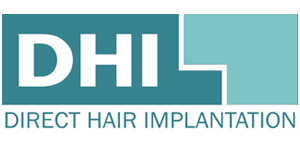Growth Factor treatment
has been in use in the medical field since the 1980s
The DHI Growth Factor
100% NATURAL RESULTS
Growth Factor stimulates the growth of your existing hair, providing you with natural-looking results.
NON-INVASIVE
Growth Factor is a non-invasive treatment and has no downtime after the procedure – no pain, no stitches, no scars.
SAFETY & HYGIENE
Regulated under strict DHI standards and protocols, the DHI Growth Factor treatment is safe for all.
Got A Question about Growth Factor Treatment
Injecting Growth Factor into the scalp stimulates the stem cells in the hair root which will lead to the following activities:
- Activate hair follicles that are in the dormant stage to start growing hairs again.
- Increase blood supply and nutrients to the hair.
- Prolong the growing phase of the hair cycle so it does not shed so easily
Overall, Growth Factor will help you grow new baby hairs, decrease hair fall, strengthen existing hairs as well as thicken them.
Anyone experiencing hair loss is essentially a good candidate for Growth Factor, but those in their early stage of hair loss tend to respond best. It is more challenging to reactivate hair follicles that have been dormant for a long time and patients suffering from end stage hair loss should consider other alternative treatment options. Early diagnosis and treatment is key.
You should not undergo Growth Factor therapy if you fall into either of these groups:
- If you have an underlying autoimmune disorder such as thyroid disease or lupus, you are unlikely to have good results because these conditions will continue to cause hair loss over time.
- If you are on blood thinners, your platelets won’t work as effectively and results cannot be guaranteed.
You can start to see a difference in hair quality after just 1 Growth Factor therapy. Nevertheless, for best results, consistency is key. Most patients opt to do a treatment once a month for the first 3 months, and then every 3 – 6 months thereafter as maintenance, depending on the individual patient’s response and results.
The first result that patients usually note is rejuvenated hair (more shiny and thick), decreased hair shedding, followed by new baby hairs and increased hair length. Receiving treatments every 3 – 6 months on a long-term basis is optimal for continuing to stimulate the growth factors and stem cells that are associated with hair regrowth and preventing hair fallout.
At DHI, patients will receive a local anaesthetic before the Growth Factor procedure takes place. You may feel a slight pricking sensation (like the tip of a pen on the scalp). Soon afterwards, the anaesthetic numbs the skin, relieving any sensation throughout the procedure.
In terms of recovery, there is zero downtime. However, some patients may experience mild discomfort such as headache, minor swelling or itching which will usually subside in less than a day.
Patients Reviews
I had my hair transplant done and it does not feel itchy compared to my previous hair transplant experience from another clinic. I am very thankful to the DHI team for the great treatment they gave.
The staff at DHI was very kind and helpful. They got to the root of my hair loss before recommending the right treatment for my condition. Thanks DHI!!
Amazed by the great service I've got at DHI. The team was very professional, took really good care of me, and was very kind throughout the process. Definitely recommending DHI for anyone who has hair loss issues.
Affordable and worth it. The people at DHI are so helpful. Did a transplant session was really great. Recommended!
I have recently undergone the Growth Factor treatment at DHI and want to say that I'm so happy and amazed to see the progress in just two weeks' time. Not a big change for others but I feel a sense of confidence in me now. Thanks DHI!!!
Professional and very friendly staff. Did my transplant last month, feeling happy with the amazing result. Good job!
Had a transplant at DHI recently, result was better than expected. Thanks to the DHI team for their patience in answering all my questions and suggesting the best for me.
Very impressed with the results. Excellent service. Highly recommend.
Just visited DHI for the first time, I have received a very professional and fruitful consultation.

